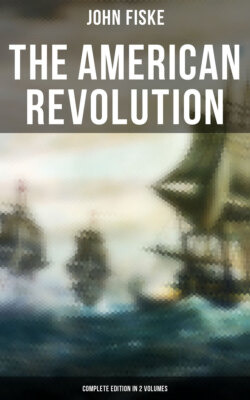Читать книгу THE AMERICAN REVOLUTION (Complete Edition In 2 Volumes) - Fiske John - Страница 20
На сайте Литреса книга снята с продажи.
The Parson’s Cause
ОглавлениеTable of Contents
But formal defiance came first from Virginia. A year and a half before, a famous lawsuit, known as the “Parsons’ Cause,” had brought into public notice a young man who was destined to take high rank among modern orators. The lawsuit which made Patrick Henry’s reputation was one of the straws which showed how the stream of tendency in America was then strongly setting toward independence. Tobacco had not yet ceased to be a legal currency in Virginia, and by virtue of an old statute each clergyman of the Established Church was entitled to sixteen thousand pounds of tobacco as his yearly salary.
SPEAKER’S CHAIR, HOUSE OF BURGESSES
In 1755 and 1758, under the severe pressure of the French war, the assembly had passed relief acts, allowing all public dues, including the salaries of the clergy, to be paid either in kind or in money, at a fixed rate of twopence for a pound of tobacco. The policy of these acts was thoroughly unsound, as they involved a partial repudiation of debts; but the extreme distress of the community was pleaded in excuse, and every one, clergy as well as laymen, at first acquiesced in them. But in 1759 tobacco was worth sixpence per pound, and the clergy became dissatisfied. Their complaints reached the ears of Sherlock, the Bishop of London, and the act of 1758 was summarily vetoed by the king in council. The clergy brought suits to recover the unpaid portions of their salaries; in the test case of Rev. James Maury, the court decided the point of the law in their favour, on the ground of the royal veto, and nothing remained but to settle before a jury the amount of the damages. On this occasion, Henry appeared for the first time in court, and after a few timid and awkward sentences burst forth with an eloquent speech, in which he asserted the indefeasible right of Virginia to make laws for herself, and declared that in annulling a salutary ordinance at the request of a favoured class in the community “a king, from being the father of his people, degenerates into a tyrant, and forfeits all right to obedience.” Cries of “Treason!” were heard in the court room, but the jury immediately returned a verdict of one penny in damages, and Henry became the popular idol of Virginia. The clergy tried in vain to have him indicted for treason, alleging that his crime was hardly less heinous than that which had brought old Lord Lovat to the block. But the people of Louisa county replied, in 1765, by choosing him to represent them in the colonial assembly.
PATRICK HENRY MAKING HIS TARQUIN AND CÆSAR SPEECH
